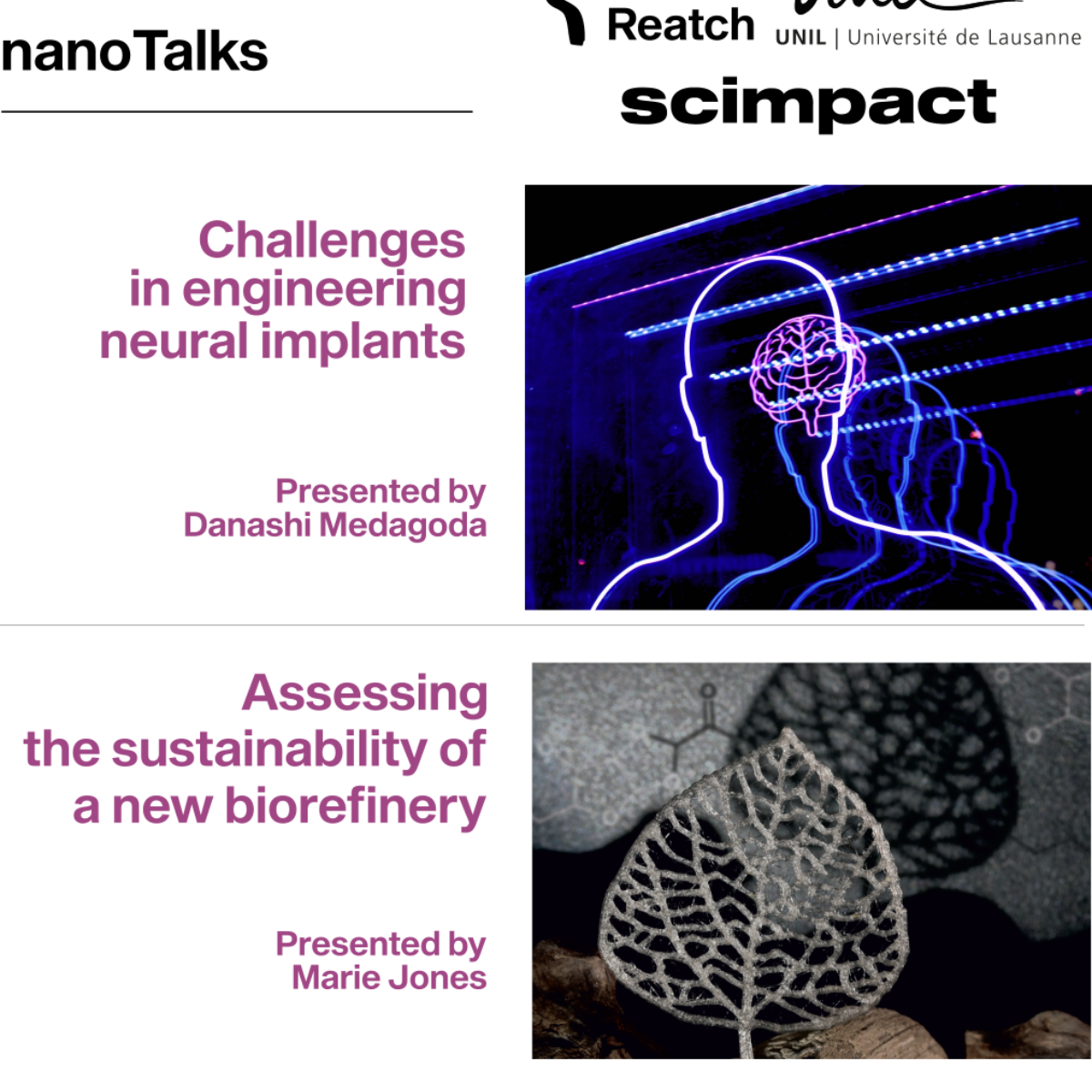
nanoTalks: Innovation for tomorrow
In the october nanoTalks we will dicuss innovations for tomorrow. Danashi Medagoda, a doctoral student, discusses the challenges in engineering neural implants, emphasizing issues like biocompatibility and power consumption. Marie Jones, doctoral student, assesses the sustainability of novel biorefining processes that could lead to a carbon-neutral chemical industry.
26.10.2023
Salle Anthropole - 4078, Université de Lausanne
max. 100

max. 100
Title 1: Challenges in engineering neural implants
Presented by Danashi Medagoda, Doctoral student in Biotechnology and Bioengineering
Neural implants enable communication and data recording from the brain, spinal cord, and peripheral nervous system, contributing to the treatment of neurological conditions like Parkinson's disease and hearing loss. Nevertheless, commercially available devices face critical challenges affecting their long-term functionality, including biocompatibility, stability, and power consumption. Both academic and industrial research are actively addressing these issues. This talk will offer insights into the significance of these challenges and highlight ongoing research directions aimed at mitigating them.
Title 2: Assessing the sustainability of a new biorefinery
Presented by Marie Jones - Doctoral student, Laboratory of Sustainable and Catalytic Processing, EPFL
Chemistry is everywhere around us, from the clothes we wear to the food we eat, let alone the medicines that cure us. Biomass is one of the most promising alternatives to those fossil-based products. However, converting biomass into cost-competitive drop-in replacements of petrochemicals is challenging. Can new molecules preserving most of the biogenic atoms provide a solution? My thesis aims at evaluating the economic and sustainability potential of those novel biorefining processes, towards a carbon-neutral chemical industry.